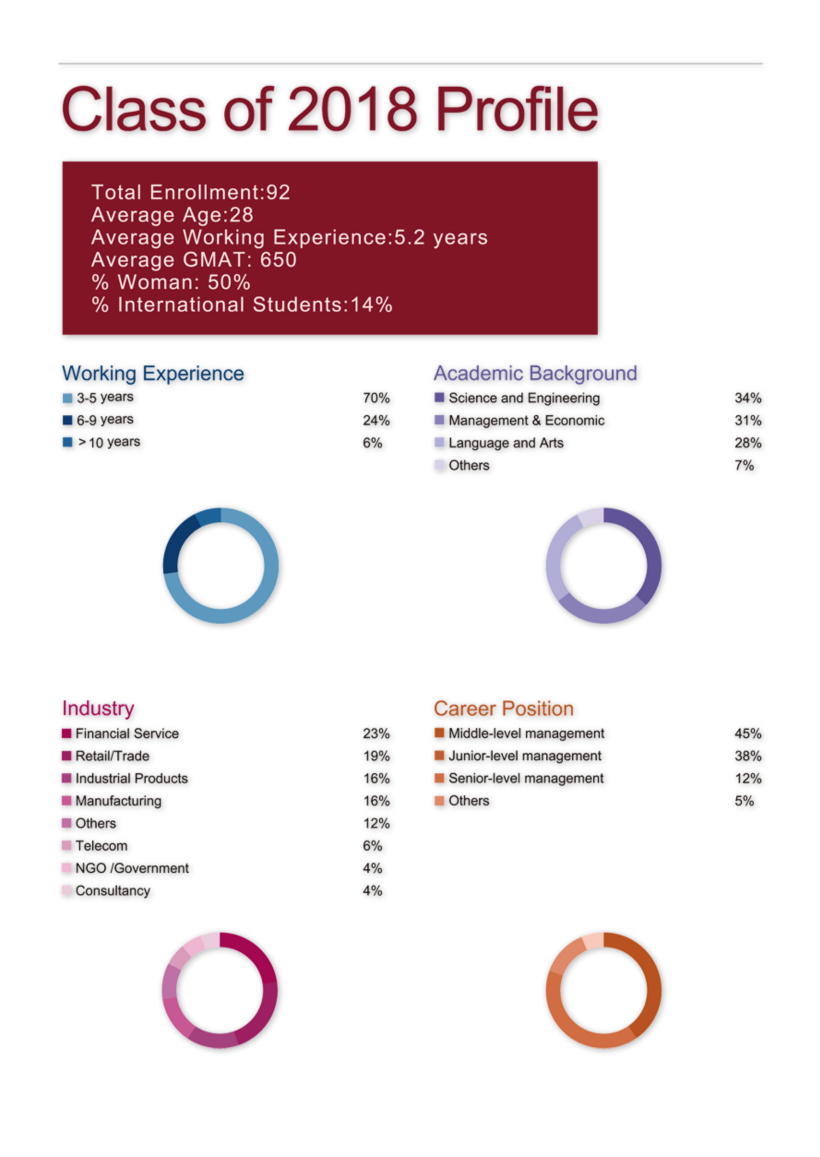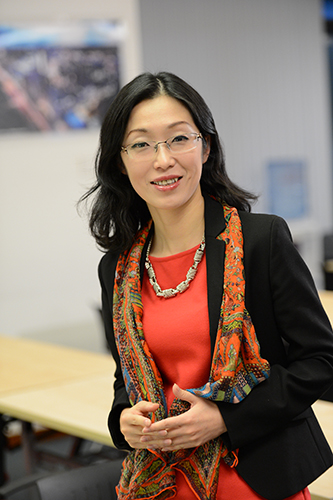Miguel L’Heureux, Canadian, sitting in a sunshine classroom with a Mac on the desk is preparing a coming presentation on how to promote a Portuguese product. He together with other 3 classmates in Fudan International MBA program and 3 Lisbon MBA students just finished intensive discussions, team members are working hard to wrap up a proposal for their client company.
“It is Fudan iLab project. We have a company in Portugal to support our initiative, who would like to enter into Chinese market. It is up to us from the very beginning to the end, to do a consulting project for them.” Miguel L’Heureux told the author.
Up till now, Miguel L’Heureux has been in Shanghai for five year already. After a three year post in Beijing, he applied and enrolled into Fudan International MBA one and half years before. “When I was looking at my options in terms of my future development, I could have gone back to Canada but I decided actually to study Mandarin full time. I thought it would help me in my future. I want to, in the next twenty years, be in a very good position when it comes to working in a large multi-national company. Chinese expertise is going to be a skill that will help me no matter where I am. ” Miguel L’Heureux admitted: “Being in China itself is an adventure. It is very different from where I come from. And to me, having to adapt to that and having to embrace the culture, it really been revolutionary to my life.”
Miguel L’Heureux’s experience in Fudan iLab was echoed by his classmate Siddharth Manoharan, who is coming from India. “It’s quite an experience still now for me and the learning is tremendous. We have a mentor from the U.S. who has been a consultant for twenty four years. Fudan gives us opportunities to step into real business world in China.”
The Fudan MBA iLab is an action learning program given within the Fudan IMBA curriculum. Established in 2005, this unique program is designed to create an academic and social atmosphere which cultivates experiential and dynamic learning. “ILab is a program that our students group up as a team, and consult for a company which needs it. That means students have a chance to pick a company or industry they are much interested in and apply the studies they have learned from the school. The process would be exactly the same as if a consulting company would come up to a company and pitch themselves.” Sun Long, Fudan IMBA Director told www.whichmba.net.
Today’s rapidly developing economy is witnessing an increasing shift of weight towards the Asia-Pacific Region. Here, China is playing a significant role as the largest and most globalized player and Shanghai is a major engine powering the growth of its economy. This has placed an urgent need for highly qualified business leaders. The development of the Fudan-MIT IMBA Program over the past twenty more years is the fruit of gathering and digesting the experiences and successes of top business educational institutions from all over the world. This is also part of an innovative path aimed at becoming a top-tier program in Asia with worldwide prominence that cultivates management elites and business leaders with both global competitiveness and local insights. Prof. Lu Xiongwen, Dean of School of Management, Fudan University replies to the question why China attracts many young executives to fly-in and to stay for their master’s study.
The Fudan International MBA Program was launched in 1996 through collaboration between Fudan University School of Management and MIT Sloan School of Management. This program, taught entirely in English, aims to cultivate professionals with an international perspective and entrepreneurial spirit, well-adjusted to the demands of economic globalization in China and the rest of the world.
Look into the 2018 class profile, we can find that 14% of the students are international students, 70% of the students have 3-5 years working experience, 24% have 6-9 years, while the rest have more than 10 years working experience. 45% of those students have the middle-level management position in their work. As for the academic background, 34% are from science and engineering, 31% are from management and economic, and the rest 35% are from language and arts, and other academic background. We also find that 23% of the students are from financial service, which is the largest percentage of the industry the students work in.

"For my masters program I was in Beijing first, and then I came to Shanghai for the second half," said Valerie, an American student completing her MBA in China. Some of the MBA programs in China attract foreign students from many different countries studying not only business, but also Chinese language. These students are eager to study in China, known worldwide as the place to go for growing businesses.
"There is a demand for talented and qualified people who also know China in some way, "said Ying Zhao, Managing Editor of whichmba.net, who knows companies demand well. "The demand is not only coming from traditional MBA graduates hires as multinationals, investment banks and management consulting companies, but also coming from Chinese startups which are growing very fast." Some of these MBA programs have connections to Shanghai, other courses are in Beijing, while still others are completed through online learning, with help from high speed internet connections.








